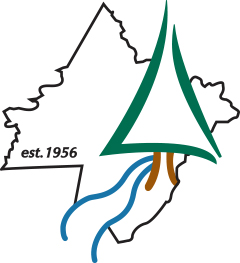
Erosion Control with more than 1 acre of disturbance
**Announcement from PA Department of Environmental Protection (DEP) Regarding Construction Stormwater**
The PAG-02 General Permit will expire on December 7, 2024. DEP expects that Notices of Intent (NOIs) to remain covered under the reissued PAG-02 General Permit will be required, and those NOIs will be due to the DEP or county conservation district office that approved original coverage by December 7, 2024. DEP expects to provide a streamlined renewal NOI form for this purpose. This form will not be available until PAG-02 is reissued (the current estimate is Fall 2024). Permittees that do not have Notice of Termination (NOT) approval by December 7, 2024 will need to submit a renewal NOI. However, DEP and county conservation districts cannot accept renewal NOIs for PAG-02 until DEP publishes the final reissued PAG-02 General Permit. More information can be found at DEP's website here.
Earth disturbance activities are regulated under PA DEP's Chapter 102 Regulations.
The Federal Clean Water Act provides that projects having 1 acre or more of earth disturbance over the life of the project may require an NPDES Permit for Stormwater Discharges Associated with Construction Activities. Examples of earth disturbance activities include, but are not limited to, commercial and residential development, timber harvesting, utility line installation and road maintenance and drainage improvements.
The District receives and conducts administrative reviews of NPDES Permit applications, reviews Erosion and Sediment (E&S) Control Plans and schedules pre-application meetings for NPDES Permit projects in Pike County. DEP’s Northeast Regional Waterways and Wetlands program staff conducts Post Construction Stormwater Management Plan reviews.
Pike County Conservation District recommends reviewing NPDES permit application materials before completing forms. For plans associated with projects requiring any permit under Chapter 102 (i.e., NPDES Permit, Erosion, and Sediment Control Permit, ESCGP-1) please submit the following:
Pike County Conservation District Application and Fee Schedule for Services (PDF)
Note: the DEP disturbed acre fee has to be submitted separately by check.
Pike County Conservation District PNDI Information Sheet (PDF)
- Permits and Applications
- PAG-02 General NPDES Permit for Discharges of Stormwater Associated with Construction Activities, PAG-02 Notice of Intent (NOI), and other PAG-02 Documents.
- Application for an Individual NPDES Permit for Discharges of Stormwater Associated with Construction Activities.
- PAG-01 NPDES General permit for discharges of stormwater associated with small construction activities.
- If applicable, Chapter 105 forms and fees
*It is the applicant’s responsibility to assure that all application materials submitted are the most current DEP forms.
For additional permit forms visit the DEP E&S Resources page.
Opportunities for Public Input on the NPDES Permit Process:
A brochure on the opportunities the public has for making public comments in regard to Individual NPDES permits for Earth disturbance activities.
PA Bulletin: Includes information on statewide and local court rules; the Governor's Proclamations and Executive orders; Actions by the General Assembly; Rulemakings by State agencies (including DEP applications, actions and notices); Proposed Rulemakings by State agencies; and State agency notices.
Resources to help develop a complete NPDES Permit Application:
Alternative E&S and PCSM BMPs Reviewed by DEP (approved BMPs on this listing may be used for managing stormwater associated with new construction projects)
Approved Trout Waters, Class A Wild Trout Streams, Stream Sections that Support Natural Reproduction of Trout, Wilderness Trout Streams (For PA Trout Water Classification- Exceptional Value Wetland Determination)
DEP Erosion and Sediment Pollution Control Program Manual

Invasive species cost the US over 120 billion dollars each year. These species impact tourism, transportation, resource use, water withdrawals and much more.
Never move animals or plants from one area to another. Don’t move firewood, soil, or other items that might contain insects or microbes.




